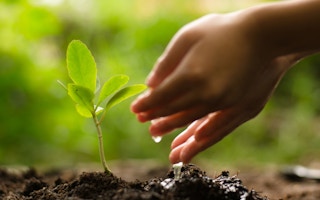While global citizenship means many things to many people, discussions at the sixty-sixth United Nations/Non-Governmental Organizations Conference maintained that cultivating empathy, a scientific appreciation for the natural world and responsibility towards future generations must be at the core of education for global citizenship.
During a roundtable discussion entitled ‘Global Citizens as Stewards of the Planet: Energy, Environment and Climate Change,’ Alexander Leicht, UN Educational, Scientific and Cultural Organization (UNESCO) section chief of Education for Sustainable Development, saw challenges posed against the environment as a strong argument for global citizenship.
“Political agreements, technological solutions or fiscal incentives are not enough. We need a change of mindsets and actions that only education can bring about,” he said from the dais.
In today’s era of global pollution, natural resource depletion and threats to biodiversity, societies are reassessing the value placed on the natural environment and exploring how formal and informal education, training and grassroots advocacy can strengthen humankind’s capacities to exist on the planet.
Mr. Leicht underscored the importance of understanding the scientific facts of climate change and the economic processes that bring it about. He urged all to “participate in societal and political processes that address climate change, and take steps in the local environment to mitigate it.”
While global education has, for years, been taught in schools under the social sciences, the voices and teachings of indigenous cultures are helping to identify the values and skill sets necessary for sustainable production and consumption to protect all life.
According to Hindou Oumarou Ibrahim, Coordinator of the Association for Indigenous Women and Peoples of Chad, indigenous peoples can impart vital knowledge on protecting the environment. She considered Sustainable Development Goal (SDG) 13, on taking urgent action to combat climate change and its impacts, as the most important of the 17 SDGs , because it serves as the basis for all the others.
“Indigenous peoples have used their knowledge to keep their communities healthy. They have been properly managing natural resources for centuries with ideologies that have been developed over generations,” Ms. Ibrahim pointed out.
“
Political agreements, technological solutions or fiscal incentives are not enough. We need a change of mindsets and actions that only education can bring about.
Alexander Leicht, section chief, Education for Sustainable Development, UNESCO
She explained that the rules defined by indigenous populations can help. “People must respect Mother Nature first. They must respect the water, respect the trees, respect the animals.”
Indigenous teachings affirm reverence for all relations, the kinship of all life.
“Our elders and we have been observing changes in the planet for a long time – sadly of our own making. We noticed that the glaciers in the Andes were disappearing and that animals in the north were moving to the south because of the changing weather,” said Leonzo Barreno, a Guatemalan Mayan, who moderated the discussion.
Mr. Barreno expressed gratitude that the UN is leading the combat against climate change.
“Now people around the world can see nature as part of themselves. When we indigenous used to say ‘Mother Earth’ or ‘Father Sun’ people would laugh, but for us it was real. This is why so many indigenous people around the world would defend the land with their lives. There was no disconnection between us and the earth, between us and the animals, between us and the lakes and the rivers.”
Youth Ambassador for Native Children’s Survival Ta’Kaiya Blaney shared a similar perspective.
“Having a deep connection of belonging and a kinship with both each other and the land is a founding principle of indigenous ideology,” she said. “This concept is severely lacking in our current society and there are many untold indigenous stories that are crucial in changing the narrative, which can change the mainstream perspective of the truth of this world.”
Ms. Blaney also asserted that indigenous peoples had a valuable part to play in combating climate change, since the majority of corporate industrial operations – most likely to contribute to climate change – were on indigenous territory.

















